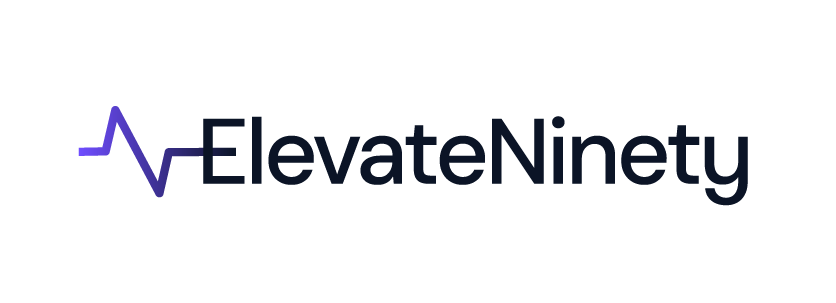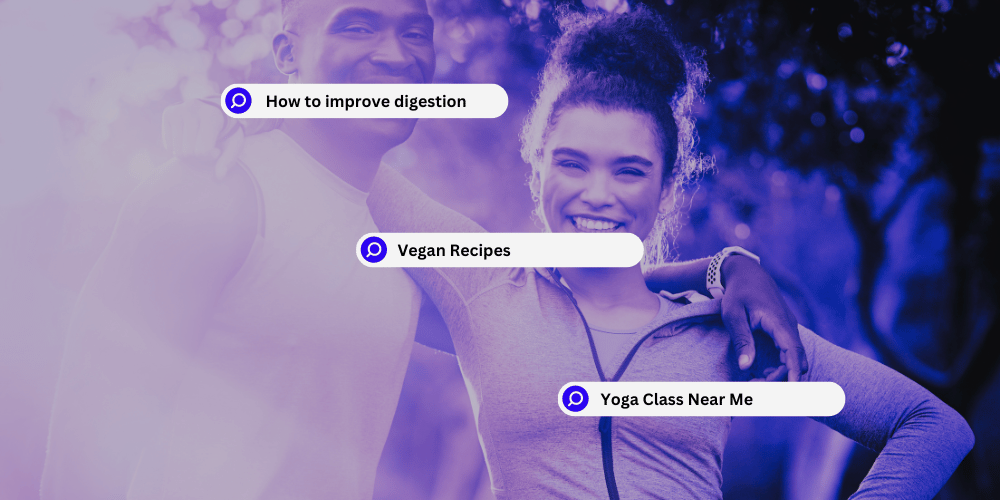To coincide with Mental Health Awareness Week, we have researched search trends for anxiety-related keywords over a three-year period. The research can shed some light on the state of mental health awareness and help-seeking behaviours for anxiety.
Anxiety disorders are prevalent mental health conditions that affect millions of people worldwide. As mental health awareness continues to grow, it is essential to understand the search behaviour of individuals seeking information and assistance related to anxiety. By analysing search trends, we can gain insights into the evolving landscape of mental health and identify areas where further attention and resources may be required.
Anxiety-related Search Terms
The consistent high volume of searches for anxiety-related terms, averaging about 90K searches per month over the past three years, reflects the enduring prominence of anxiety as a prevalent mental health concern. This steady search volume indicates a sustained need for information and resources related to anxiety management and support.

Seeking Help for Anxiety
The significant increase in search volume for “help for anxiety” at the beginning of 2023 indicates a growing number of individuals actively seeking assistance to improve their anxiety symptoms. This surge suggests an increased awareness of the importance of seeking professional help and utilising available resources to address anxiety-related challenges.

Online Therapy and Mental Health Therapists
The search volume for “online therapist” and “mental health therapist” has shown a slight increase throughout 2022 and 2023. This trend aligns with the broader adoption of online mental health services, likely driven by the convenience, accessibility, and reduced stigma associated with seeking therapy remotely. The availability of online therapists enables individuals to overcome geographical constraints and access professional support from the comfort of their own homes.


Cognitive-Behavioural Therapy (CBT) for Anxiety
The search volume for “CBT for anxiety” has grown significantly since the summer of 2022 and peaked at the beginning of 2023. The reasonable level of search interest suggests a recognition of cognitive-behavioural therapy as an effective intervention for anxiety management. CBT’s evidence-based approach, focusing on thoughts, emotions, and behaviours, may appeal to individuals seeking structured techniques to alleviate their anxiety symptoms.

Exploring Alternative Anxiety Reduction Methods
The interest in alternative anxiety reduction methods is evident from the search trends for “anxiety rings” and “crystals for anxiety.” Although these terms experienced peak search volumes in 2021 and 2022, their popularity has slightly decreased in 2023. Despite the decline, they still attract reasonable search volumes, indicating a subset of individuals willing to explore non-traditional approaches for anxiety relief. The allure of anxiety rings and crystals may stem from the desire to find tangible objects or rituals that provide comfort and promote a sense of calm. The peak volumes in 2021, especially could be attributed towards covid related anxiety disorders.


Declining Interest in CBD Oil for Anxiety
While CBD oil for anxiety gained significant attention from 2020 and towards the end of 2022, with an average search volume of about 4K. It has experienced a notable decline in 2023, averaging around 1400 searches. Further investigation is necessary to understand the underlying reasons behind this decline and the potential impact on the perceived efficacy of CBD oil for anxiety. However, this shift in interest could be attributed to various factors, with one being consumers perception of CBD’s effectiveness and safety.

Final Thoughts on Anxiety Related Search Trends
The analysis of anxiety-related search trends provides valuable insights into the evolving landscape of mental health awareness and help-seeking behaviors. The consistent high volume of searches for anxiety-related terms indicates the enduring prevalence of anxiety as a mental health concern. The increased search volume for “help for anxiety” suggests a growing number of individuals actively seeking assistance for their anxiety symptoms, reflecting a positive trend towards recognising the importance of seeking help and support.
Tips and Hints for Marketers to Improve their Anxiety Related Content
- Educational Blog Posts: Create informative blog posts that provide in-depth information on anxiety management techniques, such as “5 Effective Cognitive-Behavioural Therapy (CBT) Strategies for Anxiety” or “Understanding the Benefits of Mindfulness for Anxiety Relief.”
- How-to Guides: Develop step-by-step guides or video tutorials that walk individuals through anxiety reduction methods, such as “A Beginner’s Guide to Practicing Progressive Muscle Relaxation for Anxiety” or “Using Breathing Exercises to Calm Anxiety: A Comprehensive Tutorial.”
- Expert Interviews: Conduct interviews with mental health professionals or therapists specializing in anxiety treatment. Ask them about evidence-based techniques, common misconceptions, and tips for finding the right therapist. Publish the interviews as articles, videos, or podcast episodes.
- Case Studies: Share real-life stories of individuals who have successfully managed their anxiety. Highlight different approaches they used, such as therapy, self-help techniques, or alternative methods. Illustrate the journey from anxiety to improved well-being, providing inspiration and practical insights.
- Product Reviews and Recommendations: Review and recommend anxiety-related products that have gained popularity, such as anxiety rings, stress balls, or essential oil diffusers. Provide an honest assessment of their effectiveness and highlight how they can be incorporated into anxiety management routines.
- Infographics: Create visually engaging infographics that explain the science behind anxiety, depict anxiety reduction techniques, or compare different therapeutic approaches. Infographics can be easily shared on social media platforms and are highly shareable, increasing brand visibility.
- Interactive Quizzes and Assessments: Develop interactive quizzes or self-assessment tools that help individuals identify their anxiety symptoms, severity, or specific triggers. Offer personalized recommendations based on the quiz results to guide individuals towards suitable resources or treatments.
- Webinars and Live Q&A Sessions: Host webinars or live Q&A sessions featuring mental health professionals or experts in anxiety management. Allow viewers to ask questions and provide expert advice on managing anxiety, therapy options, or self-care practices.
- Podcast Episodes: Create a podcast series focused on anxiety-related topics. Discuss various aspects of anxiety, interview experts, share personal stories, and offer practical advice and strategies. Podcasts are a popular medium for delivering informative and engaging content.
- Social Media Content: Develop bite-sized content for social media platforms, such as inspirational quotes, quick tips, or short videos demonstrating relaxation techniques. Encourage audience engagement by asking questions or hosting themed discussions related to anxiety management.
Remember to tailor the content to your target audience’s preferences, keeping it informative, empathetic, and supportive. By offering valuable and relevant content, marketers can establish their brand as a trusted resource for anxiety management and attract and engage individuals seeking information and support.





